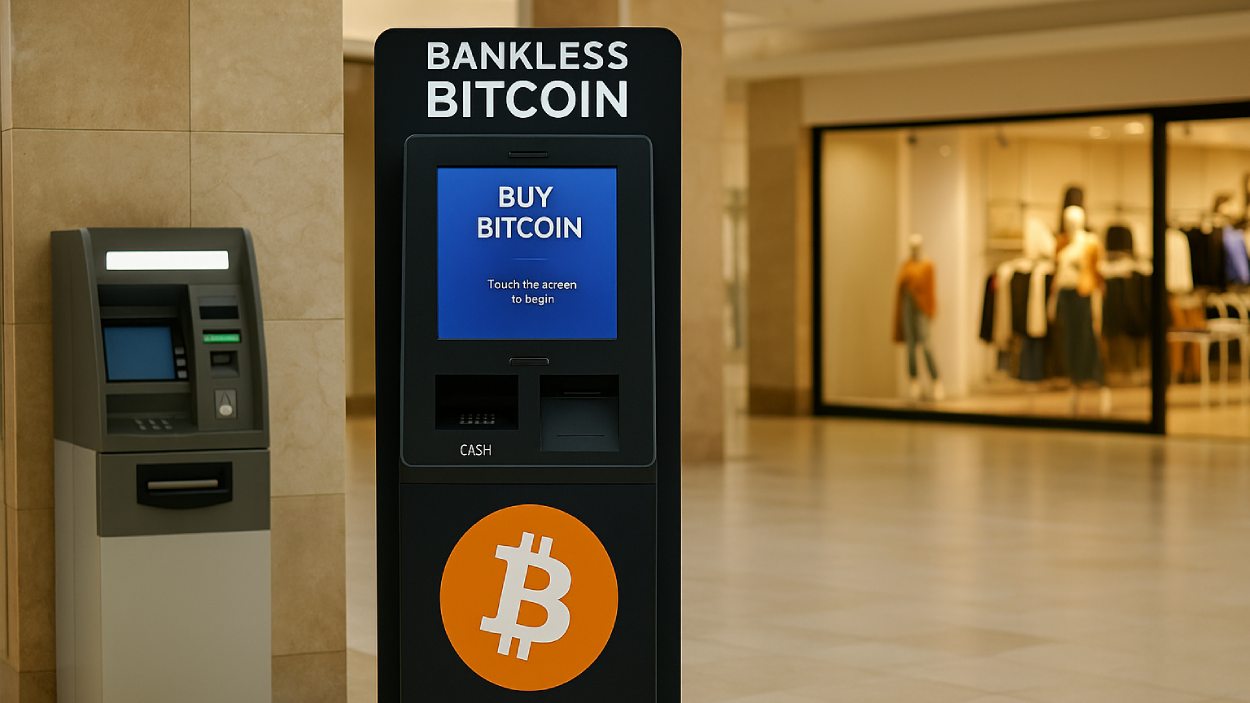Bitcoin ATMs have quietly made their way into several Nairobi malls just days after Kenya’s new crypto law took effect, sparking confusion as regulators confirm no firms are licensed yet.
Quick Summary – TLDR:
- Bitcoin ATMs launched in Nairobi malls soon after Kenya’s crypto law came into force.
- Regulators warn no crypto operators are licensed, calling current activity unauthorized.
- The new law aims to regulate the crypto industry, but implementation rules are still pending.
- Grassroots crypto use in low-income areas like Kibera shows crypto’s deep local impact.
What Happened?
Several Bitcoin ATMs branded “Bankless Bitcoin” have appeared in Nairobi’s upscale shopping centers, including Two Rivers Mall, Westlands, and Ngong Road. These installations arrived shortly after Kenya’s Virtual Assets Service Providers (VASP) Act came into effect on November 4, 2025. However, in a joint warning issued on November 18, the Central Bank of Kenya (CBK) and the Capital Markets Authority (CMA) clarified that no crypto firms are yet licensed under the new law.
Kenya’s first Bitcoin ATM has now opened at Two Rivers Mall, next to the NCBA ATM.#Bitcoin #DEFİ #Crypto https://t.co/rcEevby2jr
— Web3Africa.news (@web3africa1) November 18, 2025
Crypto Machines Appear Before Licenses Do
The Bitcoin ATMs offer cash-to-crypto services, positioning themselves beside traditional bank kiosks. Yet, the Kenyan government is still in the process of developing implementation rules for the VASP Act. According to the CBK and CMA, licensing will only begin after the National Treasury releases detailed regulations. For now, any firm claiming to be licensed is doing so illegally, the regulators warned.
This sudden appearance of ATMs has created a regulatory mismatch, where physical crypto infrastructure is rolling out while legal approval is still pending.
A Law Without Teeth Yet
The VASP Act represents Kenya’s first comprehensive legal framework for regulating crypto firms. It designates:
- The CBK to oversee custody and payment operations.
- The CMA to handle trading and investment services.
The law was passed in October following pressure from fintech advocates and is modeled on US and UK regulatory standards. Finance Committee Chair Kuria Kimani explained the goal is to fill a regulatory void that had deterred investors.
But while the law is now active, the regulatory infrastructure to support it remains incomplete. Without the Treasury’s guidance on implementation, all Virtual Asset Service Providers remain unlicensed.
From Kibera Backstreets to Upscale Malls
Bitcoin’s story in Kenya isn’t new. Grassroots crypto adoption has existed in low-income neighborhoods like Kibera for years. In Soweto West, local fintech Afrobit Africa launched a program in 2022 offering Bitcoin grants to garbage collectors lacking formal IDs or bank accounts. Roughly $10,000 worth of BTC has flowed through the area since, supporting about 200 users.
Afrobit Africa’s co-founder Ronnie Mdawida told Capital News, “In many cases, people in Kibera do not have an opportunity to secure their lives with normal savings.” With Bitcoin, he added, residents can store value without banking paperwork, calling it a form of “financial freedom”.
Now, with Bitcoin ATMs entering luxury malls, this once-informal system is visibly entering mainstream retail.
Regulatory Confusion Meets Growing Adoption
This isn’t the first time Kenya has seen Bitcoin ATMs. Back in 2018, the provider BitClub attempted to launch similar machines, but with limited adoption and no presence in mainstream shopping areas.
According to CoinATMradar, only two Bitcoin ATMs are currently tracked in Kenya, although the recent installations suggest more may be operational off the radar.
The growing presence of these machines underlines a bigger issue: Kenya’s crypto industry is moving faster than its regulators.
SQ Magazine Takeaway
Honestly, this is a classic case of tech outpacing the law. People want crypto, and businesses are clearly ready to offer it. But the government is still writing the rulebook. We’re seeing Bitcoin move from the backstreets of Kibera into posh shopping malls. That’s a huge shift. What worries me, though, is the confusion it creates for everyday users. If the regulators are saying nothing is licensed, but the machines are live, who’s actually keeping an eye on consumer protection? Kenya needs to get its act together quickly or risk losing control of the crypto narrative.


































































